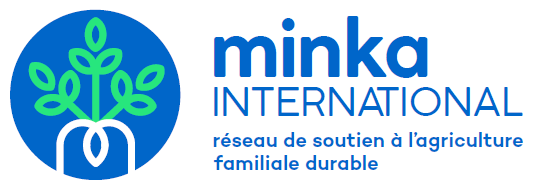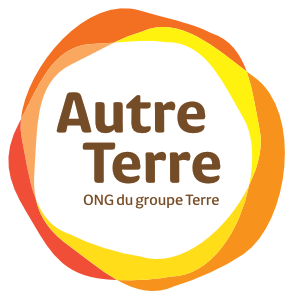WHAT IS AUTRE TERRE?
Autre Terre is a non-governmental development organisation. It was born under the name TTMI (Terre Tiers Monde International) in 1980 and became Autre Terre in 2002. It is one of the members of the Groupe Terre, which is a group of associations and companies of social and solidarity economy with a common vision of building a democratic and united world where every person can live in dignity. Autre Terre therefore focuses on social economy and solidarity projects in the areas of agroecology and waste management in Africa and Latin America.
WHAT DOES AUTRE TERRE DO?
The primary objective of Autre Terre is to improve the quality of life of people in the South through the development of sustainable economic activities. The NGO also provides technical support and direct funding for projects and/or partners. Autre Terre is also active in raising awareness among the Belgian public about the global challenges of agroecology and sustainable food systems.
AND MORE CONCRETELY?
In Senegal and Burkina Faso, Autre Terre and its local partners Caritas Kaolack, ASDES and CEAS Burkina, have been supporting for many years several communes in the development of complete waste management systems based on an approach led by the populations through neighbourhood development. In Peru, Autre Terre works with Mujeres Ecosolidarias, which supports initiatives for the valorisation and transformation of waste (hard plastic, compost, artistic projects) that reduce the impact of pollution and create employment opportunities for women in need in the city of Arequipa.
Autre Terre works as well in the promotion of agroecology and sustainable food systems in Mali, Burkina Faso, Benin, and Peru. In Burkina Faso Autre Terre and CNA-Bio work together to strengthen the place of agroecology in the national agricultural strategies, in particular through meetings with elected officials, public events, awareness-raising and the production of reference documents. The CNA-BIO is involved in the creation of a national market for organic products, in particular through organic certification (Bio-SPG) and the setting up of regional consultation tables between stakeholders. In Burkina Faso Autre Terre also works with the Baobab a local NGO that set up development projects in rural areas aiming at the full empowerment of farmers through the development of local value chains, reforestation and the sensibilisation and training of local populations. In Mali Autre Terre works in collaboration with local organizations, UCEM, Azhar and Tassaght, to improve the quality of the environment through the practice of agroecology and to support the production, processing, consumption and marketing of local agricultural products and local economy. Autre Terre’s agro-ecology projects support the emergence of autonomous groups of producers, experts in their practices, who can organise themselves democratically, obtain income worthy of their work and restore the biodiversity of their environment. In Peru, Autre Terre support farmer producer’s organisations working the developpement of several organic products such as andean grains, avocado, potato or dairy products. By taking the option of working on productive chains, Autre Terre wants to promote profitable social enterprises that allow farmers to generate the necessary funds for their own development. From 2023 Autre Terre will also work in Benin with CERD Bénin and Tikonna, in the fight against food insecurity and poverty by helping to build the capacity of young students and women’s groups in the Atacora region in the areas of agroforestry and transformation of agricultural products.
. .To see all the other projects in which Autre Terre is involved, go to: https://www.autreterre.org/nos-projets/nos-projets-en-cours/?fwp_per_page=27
WHERE DOES ANOTHER LAND ACT?
Benin, Burkina Faso, Mali, Peru, Senegal.
WHAT IS THE SITUATION IN THESE COUNTRIES?
Benin: Agricultural productivity is limited due to land degradation and loss of forest resources caused by unsustainable economic and agricultural practices. Soils have low organic matter content and a structure that is particularly prone to erosion, making them more vulnerable to climate change. Burkina Faso: the government still supports too many polluting and environmentally destructive agricultural practices. The salubrity of Burkina Faso’s cities poses serious problems of hygiene, waterborne diseases, animal deaths and water pollution. The very sensitive security context and the massive displacement of populations are challenges that add to the need to develop sustainable food systems. In Mali, biodiversity is being degraded in some regions due to gold mining and the use of pesticides and chemical fertilisers. Again, the security context is a major challenge for interventions. In Peru, the majority of peasant communities are unable to make a living from their production and have to move away to find additional income. The quality of the environment and the land, polluted by modern agriculture and the waste of the urban population, combined with a shortage of available land, are all dangers for food security. In Senegal, sanitation poses serious hygiene and health problems related to water and environmental contamination. There is also significant population growth, which results in an increase in the production of household waste.
Site web : https://www.autreterre.org/
Siège : Belgium
Pays d'action : Benin, Burkina Faso, Mali, Peru, Senegal.
Actions : To improve the quality of life of people in the South through the development of sustainable economic activities.

